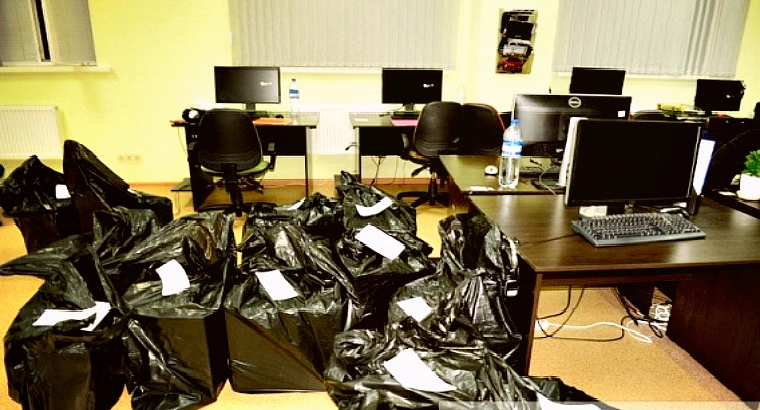Russian Supreme Court Permits Confiscation of Phones and Computers for Extremist Posts
The Russian Supreme Court has clarified that phones, computers, and other electronic devices can be confiscated if used to post extremist or terrorist content online. According to a resolution by the Plenum of the Supreme Court of the Russian Federation, “in criminal cases involving terrorist and extremist crimes, any property belonging to the accused that serves as a tool, equipment, or other means of committing a crime is subject to confiscation.”
Property used to commit a crime can be seized even before a court verdict is issued. The Supreme Court’s Plenum provided explanations on controversial issues regarding confiscation. The current Russian Criminal Code defines confiscation as the forced, uncompensated seizure of property and its transfer to state ownership based on a guilty verdict. Specifically, tools, equipment, or other means used to commit a crime, as well as valuables and property obtained through illegal actions, can be taken from convicted individuals.
For crimes of a terrorist or extremist nature, the Supreme Court allows the seizure of any property belonging to the accused that was used or intended to be used in committing the crime. This explicitly includes the possibility of confiscating computers, phones, and other electronic communication devices used to post messages or materials online that contain public justification or calls for terrorist activity.
The published document on the Supreme Court’s website states:
- “In criminal cases involving terrorist and extremist crimes, any property belonging to the accused that serves as a tool, equipment, or other means of committing a crime is subject to confiscation. Such property may include cell phones, personal computers, and other electronic communication devices used, in particular:
- to post text, audio, video, and other materials in mass media or electronic or information-telecommunication networks that contain public justification of terrorism and/or calls for terrorist activity;
- for direct preparation for terrorist activity (training for terrorist purposes; propaganda and distribution of banned terrorist and extremist literature, etc.).
- Money, valuables, and other property used or intended for financing terrorism, extremist activities, organized groups, illegal armed formations, or criminal organizations are subject to confiscation under paragraph “v” of part 1 of Article 104.1 of the Russian Criminal Code, regardless of ownership.”
Gleb Bogush, an associate professor at Moscow State University, notes that the Plenum’s provision for confiscation “regardless of ownership” is not present in the law. In some cases, the Plenum has not clarified but rather increased the law’s ambiguity: “Courts will have to interpret what the Plenum meant when explaining what the lawmakers intended.” According to Mr. Bogush, the problem is exacerbated by the expansion of anti-terrorism measures into criminal law, resulting in “emergency norms” being applied more broadly. He believes these systemic issues should have been discussed publicly, but the Supreme Court declined a wide-ranging debate.
Vadim Klyuvgant, co-head of the criminal law practice at the Pen & Paper law firm, reminds that the law does not provide for the confiscation of property that “was used or intended to be used in committing a crime”: “I believe such liberties in interpreting criminal law are unacceptable, especially when it concerns the rights of third parties not involved in the crime. The vague meaning of ‘terrorist and extremist crimes’ and the ambiguous wording create dangerous uncertainty, opening the door to abuse. This is especially concerning given the increasingly broad and often questionable application of criminal prosecution in such cases,” the expert says.
It is worth noting that Dmitry Bogatov, a Moscow mathematician acquitted of charges of inciting mass riots and terrorism, has still not received some of his confiscated equipment back. “One of the devices, it seems, they want to recognize as evidence,” he told RosKomSvoboda in an interview. “The rest just haven’t been returned. The investigator shrugs and says, ‘I returned everything I had.’ Naturally, I have an inventory of what was seized, a copy of the protocol—we’ll be working with that.”



